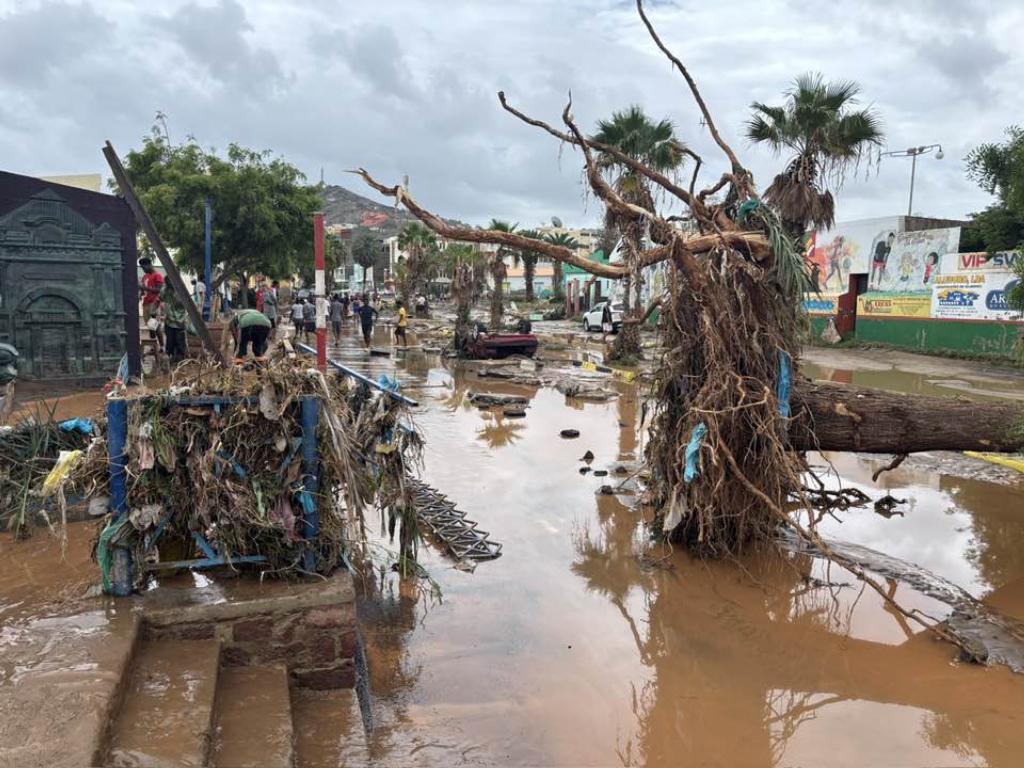Africa-Press – Cape verde. An assessment by the World Health Organization (WHO) identified diseases transmitted by contaminated water or mosquitoes, as well as mental disorders, as public health risks in the current post-flood period on the island of São Vicente.
Torrential rains from the August 11 storm caused nine deaths, two missing people, and the destruction of infrastructure on the island.
“An increase in cases of diarrhea and respiratory infections has been observed; however, the situation remains within the alert threshold. Due to the precarious water and sanitation conditions, teams have been mobilized to reinforce active surveillance for diseases with a higher risk of occurrence,” reads the document, dated Friday and consulted today by Lusa.
According to the WHO, “alerts were issued due to cases of diarrhea, fever, and headaches” among people sheltering in schools (nine cases, including two children) and in another center set up at the Mindelo Stadium (six cases in adults).
Limited access to water, sanitation, and hygiene “is a key risk factor for acute diarrhea,” and flooding, following a prolonged drought, “can increase exposure to diarrheal pathogens: dry conditions concentrate them and are then released with floodwaters, increasing the risk of disease transmission,” the document described.
The risk of gastroenteritis outbreaks in São Vicente “has increased significantly,” associated with a “low risk perception regarding food security, poor hygiene and sanitation conditions, and frequent reports of foodborne outbreaks among residents and tourists.”
In the case of vector-borne diseases, such as mosquito-borne diseases, which include dengue, malaria, and other arboviruses, the risk “has increased significantly” due to the stagnant water that accumulated after the floods.
“The Ministry of Health and a WHO entomologist were sent to São Vicente to assess the impact of the floods on the risk of mosquito-borne diseases,” the WHO reported, noting that the Government had already declared, on August 1, “a national contingency situation, based on the need to prevent and mitigate the potential risk of dengue fever and the reintroduction of malaria.”
Furthermore, the floods in São Vicente “significantly affected mental health conditions in the affected communities” due to “the destruction of homes, displacement of families, loss of livelihoods, and disruption of essential services,” it adds.
All of these factors contributed “to increased levels of psychological distress, anxiety, and trauma.”
Although water production has been restored, “the distribution system is not yet fully functional, and vulnerabilities in the drainage system persist.”
Furthermore, “limitations in the management of solid waste and hospital waste were observed, along with the persistence of animal carcasses in some communities, posing additional risks to public health,” the document further states.
The WHO also warns of the risk of increased food insecurity, as the Food and Agriculture Organization of the United Nations (FAO) had already predicted last week.
The storm severely impacted livelihoods, especially among “smallholder farmers and fishing families, who also suffered destruction of crops, irrigation systems, boats, and property. Important agricultural areas such as Ribeira de Calhau, Tchon d’Holanda, and Ribeira de Vinha suffered extensive damage, with smallholder farmers losing crops and livestock,” it stated.
The WHO is providing technical and financial support for human resources, transportation and medical supplies, epidemiological surveillance, the dispatch of psychologists, and the funding for extending the opening hours of health centers and the installation of a hospital waste incinerator.
For More News And Analysis About Cape verde Follow Africa-Press






